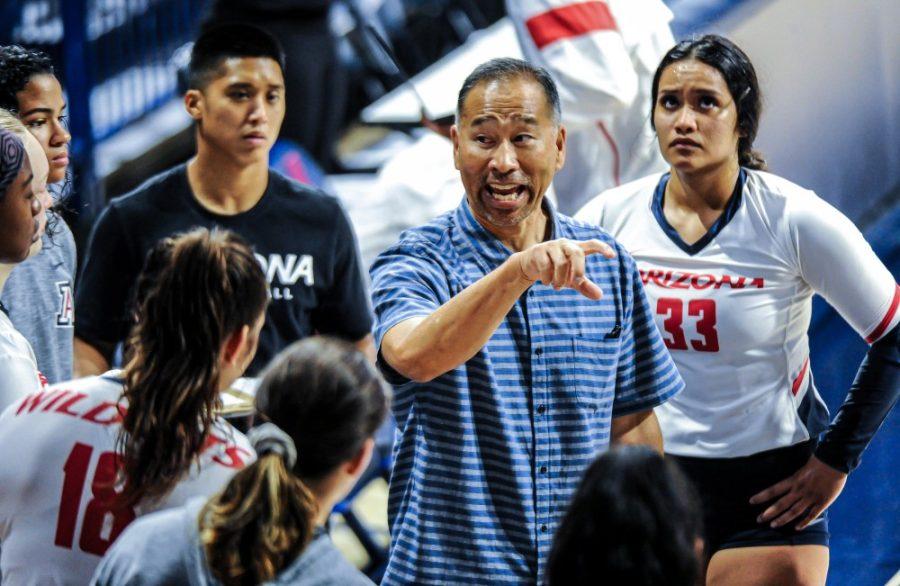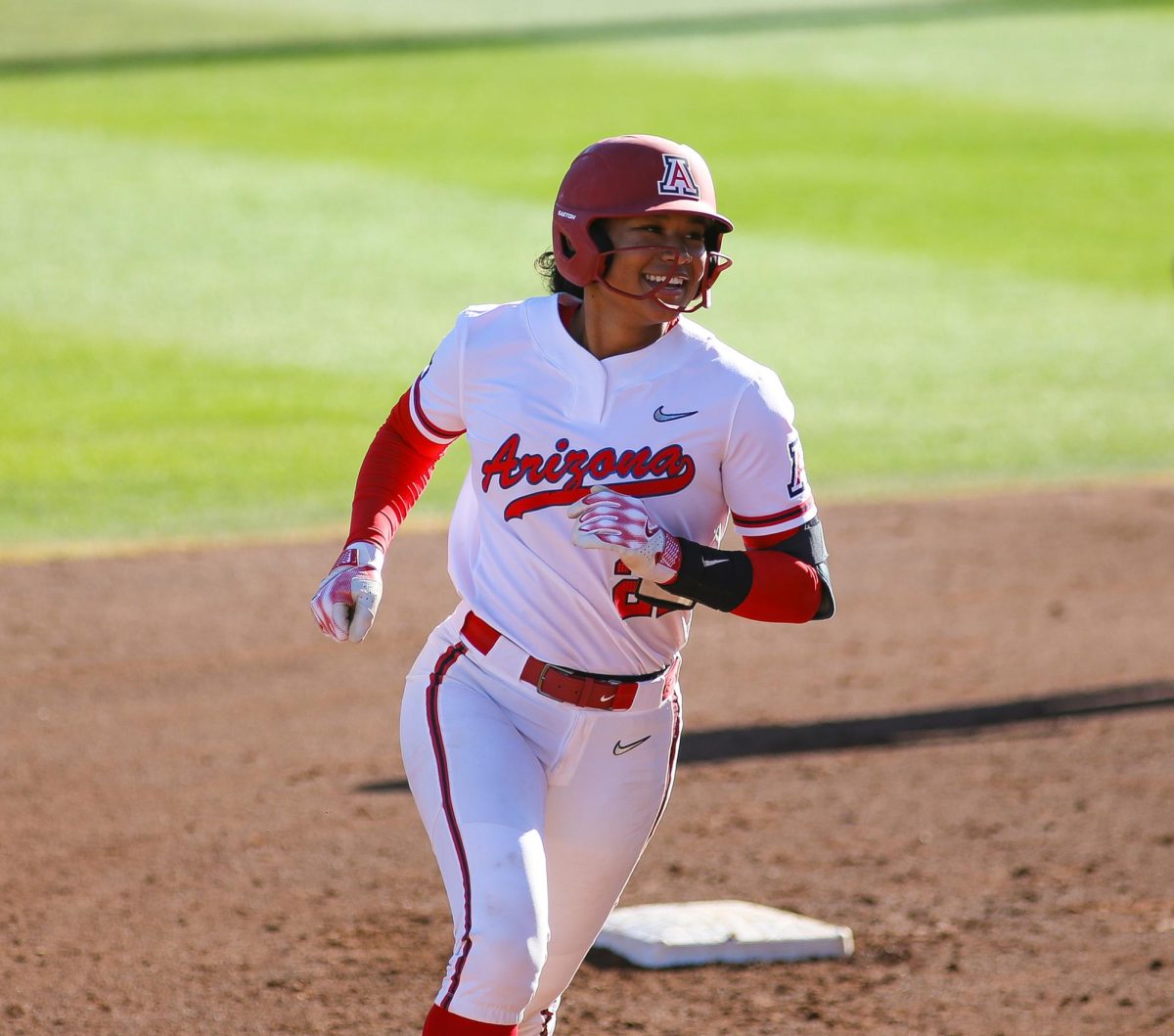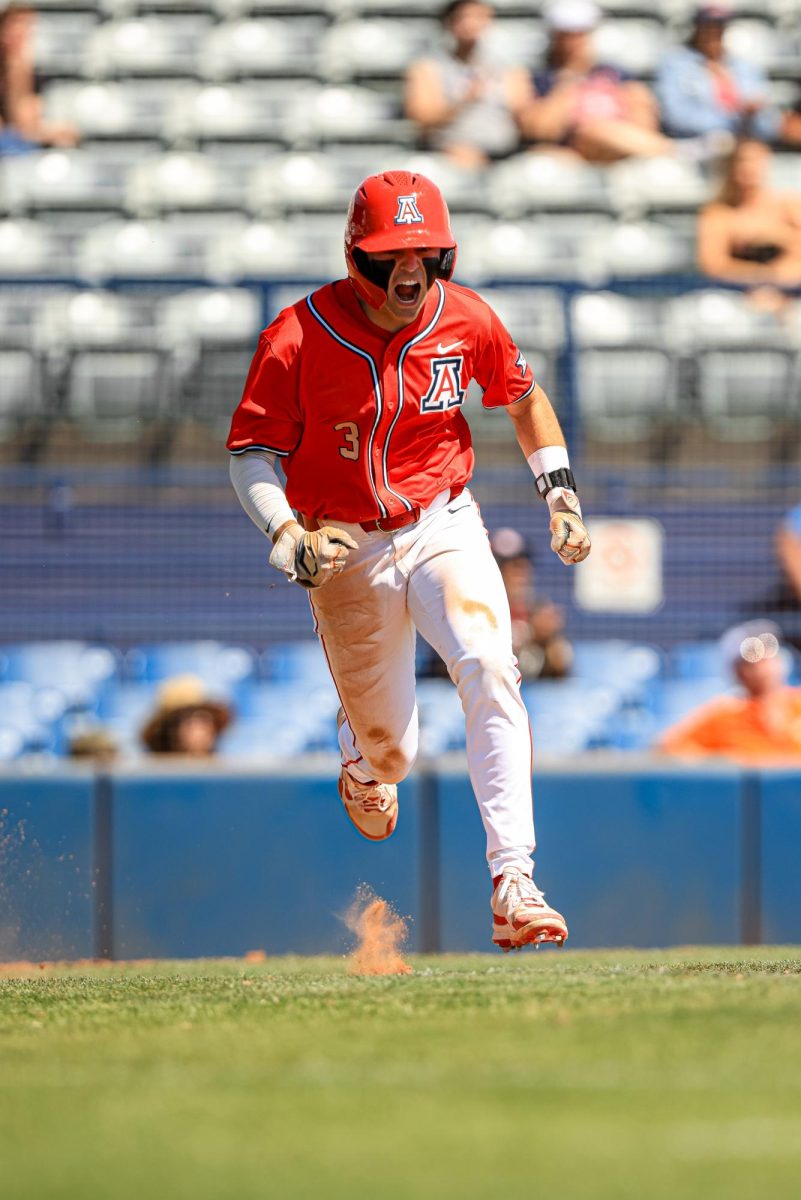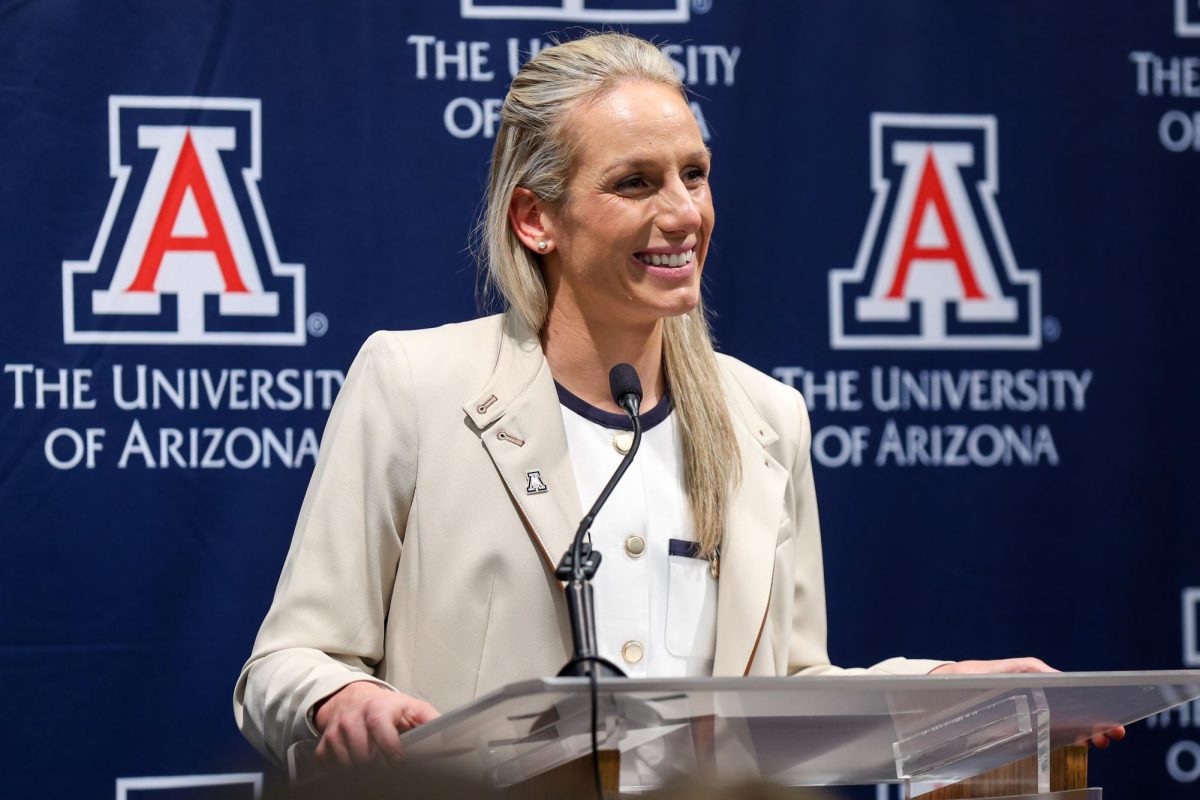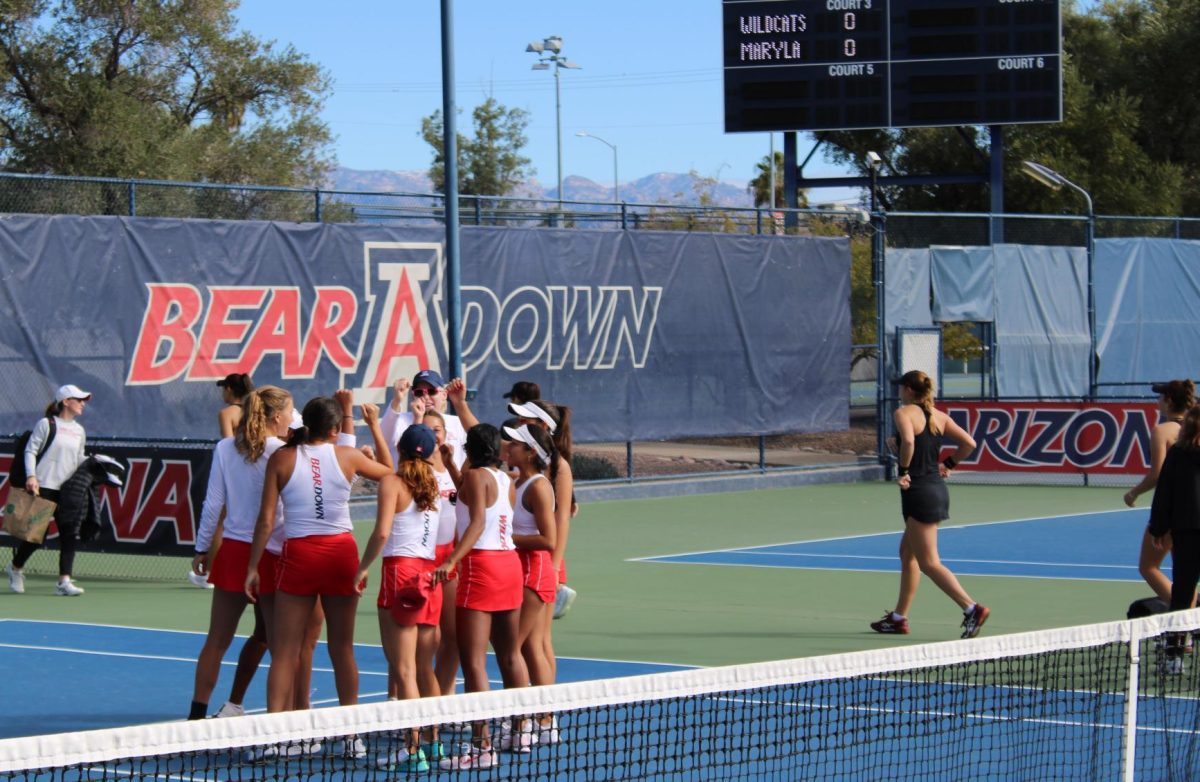Arizona volleyball head coach Dave Rubio and the Arizona Wildcats are preparing for a season unlike any other. With the beginning of the fall semester quickly approaching, the 2020 season seems to be heading in a direction with no definitive starting block.
The Wildcats have no idea when their first game will be after the Pac-12 announced last week its plans for a conference-only schedule for all fall sports in 2020. The players and coaches don’t know when they’ll be allowed to return to campus after the university’s athletic department delayed its reentry plan for its student-athletes back on June 29, resulting in the original reentry date of July 13 to be pushed back until further notice.
Nothing seems to be set in stone right now but one thing that has calmed Rubio’s nerves is the hiring of his new assistant coach, Matt Dyck. The team officially announced on Monday, July 13, that Dyck will be joining the coaching staff after Gregg Whitis departed earlier in the summer for personal and health reasons.
“The overriding factor was being able to hire someone that I knew what their personality was going to be inside the gym and what they were going to bring in terms of being a trainer,” Rubio said. “That was a really important factor for me in terms of hiring Matt [Dyck].”
Dyck coached the Arizona men’s volleyball club team from 2008-10, coached at Central Arizona College from 2011-2014 and served as an assistant at Eastern Washington from 2015-16. Dyck is also an Arizona alumnus who spent four years as a team manager under coach Rubio from 2001-05. Their relationship, however, developed much sooner.
“The Dyck family and I go way back,” Rubio said. “Matt [Dyck’s] father is a mentor of mine … we grew up in the same neighborhood, went to the same high school, went to the same junior high, went to the same college and we’ve been close friends for a long time.”
Dyck was approached about the vacant coaching position not long after Whitis resigned. Dyck described the offer as “an obvious yes” once the position was pitched to him.
“It means the world to me,” Dyck said. “It’s kind of where my volleyball journey started. The fact that I get to come back and work for [Rubio)] and Charita [Stubbs] is pretty special so I’m excited to get started and start helping.”
RELATED: Zona Zoom Episode 5: NCAA moving to conference-only schedule, MLB Opening Day approaches
Dyck enters the program in a time that nobody has dealt with before. With the start of the season remaining a mystery and the COVID-19 pandemic continuing to rise, coach Rubio can’t help but think of the concerns that come with having a 2020 season.
“I don’t think we’re out of the woods on this thing yet,” Rubio said. “There’s a lot of things like traveling and getting on an airplane. You’re at high-risk. They’re talking about putting players in individual rooms so there’s a significant cost increase with that. How do you take care of the kids from a food standpoint? There’s just so many things that we have to mitigate to make this thing work.”
Rubio suggested the possibility of moving the season to the spring semester in order to lower the risks. That idea wouldn’t come without its own set of problems as it would put a few of his players in a tough situation. Dual-sport athletes Lauren Ware (women’s basketball) and Shelby O’Neal (beach volleyball) will both have to make a decision on what sport to play as those seasons would most likely be overlapping in the spring. Rubio said that O’Neal has already decided to redshirt her freshman season but the decision for Ware is still up in the air.
“[Ware] is an impact player for both programs,” Rubio said. “It’s a discussion that Adia [Barnes] and I will have if that decision is made of moving volleyball to the spring.”
A volleyball season in the spring would also create some facility issues as the team would have to share the McKale Center with the men and women’s basketball team as well as with gymnastics. Rubio admitted that the change would be difficult but still felt that it is the best option.
“It would certainly be challenging and probably not ideal but I think time right now is our enemy,” he said. “When you move the season to the spring, I think time becomes an ally and it allows us time to figure out the virus … as we start to go through all of the protocols and bring players in with all the different phases we’re talking about, I think you can put all of those on the back-burner if we moved it to spring. I think, for one year, the facility issues can be solved. It’s not going to be ideal, it’s not going to be perfect by any means but for one season I think we could make it work.”
Follow Jacob Mennuti on Twitter



